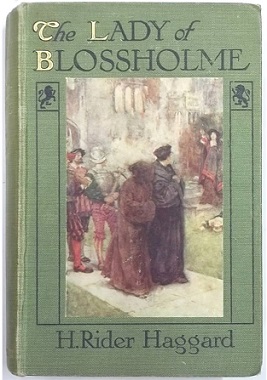
Richard II of England has been depicted in popular culture a number of times.

Richard II of England has been depicted in popular culture a number of times.
Richard has been portrayed a number of times on television, mainly in versions of Shakespeare's play. In this context he has been played by:
Richard has also been played on television by:

The Life and Death of King Richard the Second, commonly called Richard II, is a history play by William Shakespeare believed to have been written around 1595. Based on the life of King Richard II of England, it chronicles his downfall and the machinations of his nobles. It is the first part of a tetralogy, referred to by some scholars as the Henriad, followed by three plays about Richard's successors: Henry IV, Part 1; Henry IV, Part 2; and Henry V.

Henry IV, Part 1 is a history play by William Shakespeare, believed to have been written not later than 1597. The play dramatises part of the reign of King Henry IV of England, beginning with the battle at Homildon Hill late in 1402, and ending with King Henry's victory in the Battle of Shrewsbury in mid-1403. In parallel to the political conflict between King Henry and a rebellious faction of nobles, the play depicts the escapades of King Henry's son, Prince Hal, and his eventual return to court and favour.

Henry IV, Part 2 is a history play by William Shakespeare believed to have been written between 1596 and 1599. It is the third part of a tetralogy, preceded by Richard II and Henry IV, Part 1 and succeeded by Henry V.
James VI and I has been depicted a number of times in popular culture.

Richard III of England has been depicted in literature and popular culture many times. In the Tudor period he was invariably portrayed as a villain, most famously in Shakespeare's play Richard III, but also in other literature of the period. Richard's life was not much depicted again until the 20th century when the "Ricardian" movement sought to restore his reputation. Much of more recent creative literature has portrayed him in a positive light. However his reputation as a hunchbacked villain has remained a familiar historical cliché within popular culture.

Henry VII of England has been depicted a number of times in popular culture.

John of England has been portrayed many times in fiction, generally reflecting the overwhelmingly negative view of his reputation.
King Stephen of England was a grandson of William the Conqueror, and has been depicted in various cultural works. He was King of England from 1135 to his death, and also the Count of Boulogne jure uxoris. His reign was marked by a civil war with his cousin and rival the Empress Matilda, in a period called the Anarchy which has been dramatized by Beth Flintoff in her play Matilda the Empress, first performed in November 2017 at St James's Church, Reading. Stephen was succeeded by Matilda's son, Henry II, the first of the Angevin kings.
Henry II ruled as King of England from 1154 to 1189 and at various times he also partially controlled Scotland, Wales, Ireland and the Duchy of Brittany. He has been depicted in various cultural media.
Edward IV of England has been depicted in popular culture a number of times.
Henry IV of England has been depicted in popular culture a number of times.
Henry V of England has been depicted in popular culture a number of times.
King Henry I of England has been portrayed in various cultural media.
"Richard II" is first episode of the first series of the British television series The Hollow Crown, based on William Shakespeare's play of the same name. "Richard II" was directed by Rupert Goold, who adapted the screenplay with Ben Power. Ben Whishaw stars as the titular Richard II of England. It was first broadcast on 30 June 2012 on BBC Two.
The Hollow Crown is a series of British television film adaptations of William Shakespeare's history plays.

Oliver Cromwell was an English military and political leader and later Lord Protector of the Commonwealth of England, Scotland and Ireland.

The Lady of Blossholme is a 1909 historical novel by H. Rider Haggard. It is set during the time of Henry VIII, and features the Pilgrimage of Grace.
The 12th-century ruler Empress Matilda has been depicted in various cultural media.
"Henry VI, Part 2" is second episode of the second series of the British television series The Hollow Crown, based on the plays Henry VI, Part 2 and Henry VI, Part 3 by William Shakespeare. It was directed by Dominic Cooke, who also adapted the screenplay with Ben Power. It starred Tom Sturridge as Henry VI, Sophie Okonedo as Queen Margaret and Benedict Cumberbatch as Richard. The adaptation presents Henry VI in two parts, incorporating all three Henry VI plays. It was first broadcast on 14 May 2016 on BBC Two.
William Marshal, 1st Earl of Pembroke was an Anglo-Norman soldier and statesman. He served five English kings – Henry II, his sons the "Young King" Henry, Richard I, and John, and John's son Henry III.